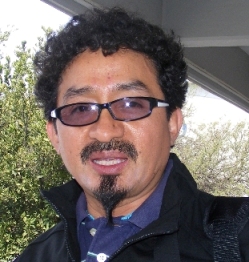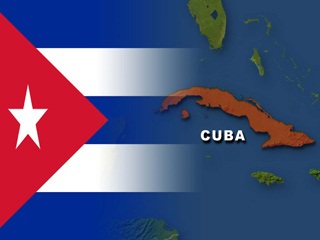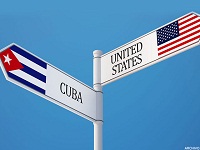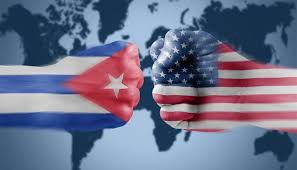In an exclusive interview to the Portal of the Cuban Radio, Espino Sanchez estimated that in recent decades some authors have claimed a large capacity media influence the voters. He notes that some of the most important theories of today, such as the spiral of silence (Noelle- Neumann, 1995) and agenda setting ( Iyengar and Kinder, 1993) , have taken up the idea of a powerful presence in the media institutions modern life.
That last , the theory of Agenda Setting is key because it was discovered that both political actors and the media and other civil society actors even ” play ” to influence the agenda in order to influence the stage of Communication Policy . It is known in journalism that according to this theory, the media cannot tell people what to think, but they can orient on the issues that should reflect. That is, have the ability to direct public attention to the topics they selected.
In such a scenario also reborn video politics theory within which the political and media show scandals included. “As part of the trend of the role of the media is usual to convert all, cultural, political or social event in a show. There are many reasons to transform all programs in Entertainment, is one of the main competition of the television for ratings ” , clarifies the Mexican theorist.
It happens that “big newspaper chains have been empowered and write the Italian thinker Giovanni Sartori and have hijacked the public space. The huge media institutions build a stage for political debate and hence have great power. Undoubtedly, the role of media in a democracy is the belt, that is, the transfer of political messages to public and vice versa, “said Espino Sanchez.
– What then are the main criticisms of these trends?
“Today there is a critique of those video politics theories. Some experts such as Mexican Guillermo Orozco tell us that people are not stupid and that is not enough for a media candidate to win out. Often someone that does not expire pact with the media, preferring to build his popularity from the public.
“The most representative case in recent years was the campaign of U.S. President Barack Obama. In 2008 when he started that race, Democrat Hillary Clinton had the consultation with the media. And then an unknown candidate like Obama who succeeded in conquering the electorate emerges. All this is a measure that is not only the question of video politics because there are other influencing factors.
“And is that the communication processes are more complicated and media messages have many implications. They can be subverted by people who have the possibility of a critical reception. This confirms that there are many ways to consume information. “
– In that scenario, do you think it is necessary to regulate the role of the media think?
“We have the mission to regulate the media. You cannot become exclusive to the corporate media. In countries like the U.S. and Europe are also trying to control these monopolies. I think they should make laws to curb the power of the media as large emporiums now dominate the media scene in the world and this reality must be changed. “
– What do you think of the emergence of social media policy?
“For me it’s the hopeful part of the Internet. While there are big corporate media, there are small social networks in which people are empowered and involved. From my point of view there is hope because social movements are articulated through social networks. It is in this way that there is a chance for people to have more and more influence in politics. “
– How is the use of blogs and traditional media?
“Old media have learned to do new things premiered and vice versa. This is what I call a true convergence. That means that the old media have had to open blogs and new media have learned to be mounted in the pages of the old because it has more capacity and advocacy. There is thus hybridization. “
– Are they loyal users to the media?
“It’s highly variable consumption. Even reception studies realize the complexity of how people make decisions. “
– What about the role of radio?
“Radio has an important role, and is widely consumed in Latin America has much insight as people watch on the transition to work or home . From my point of view has a great influence. “
Translated by: Daysi Olano





